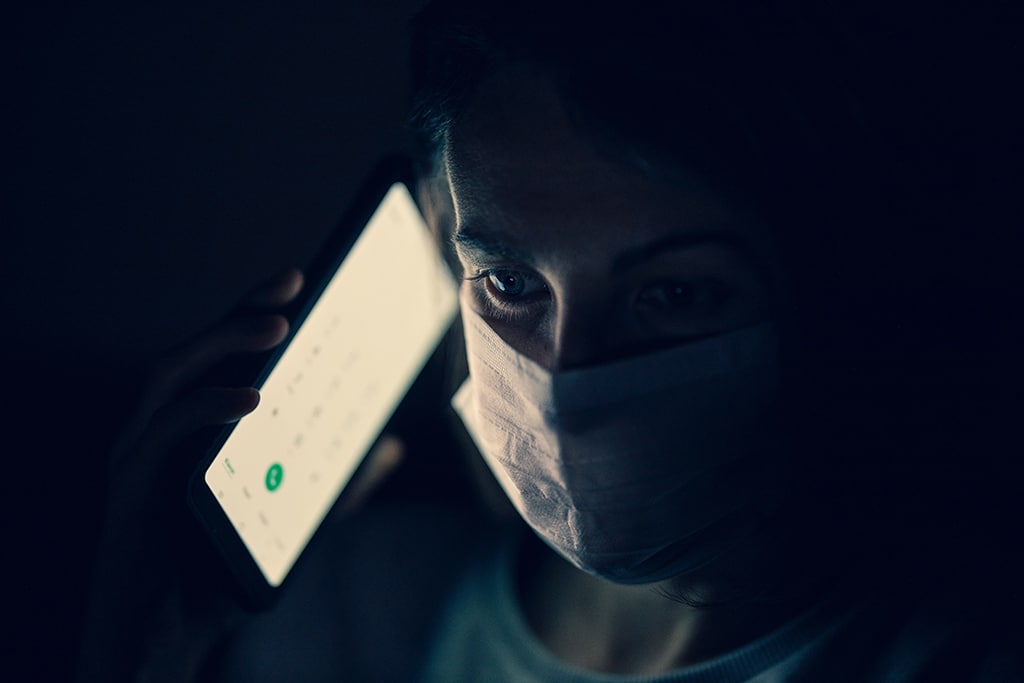
Amid the coronavirus crisis there is also an overload of information, something that the Director General of the World Health Organisation described at the beginning of February as an ‘infodemic’, a glut of misinformation deriving from various sources –there is never any shortage of troublemakers, whether motivated by their own interests, by inadvertence or for their own amusement– and a brutal crisis among the independent news media, stemming from the economic standstill and advertising and consumption taking a nose-dive. Warning lights are flashing.
Infodemics are often conflated with misinformation. But both go hand in hand, because a surfeit of information brings with it more possibilities for misinformation, especially now that the Fifth Estate (as Mark Zuckerberg of Facebook refers to social media) is starting to overtake the Fourth Estate (the conventional media in their broadest sense). Social media (20%), rank ahead of printed newspapers (16%) as a source of news, at least in the US, although television still outstrips both (49%) according to a survey conducted by the Pew Research Center at the end of 2018. That said, it should not be forgotten that the social media rely heavily on the written and audiovisual media. Although rumours are as ancient as human society itself, an article in the MIT Technology Review describes the situation as ‘the first true infodemic’.
Facebook, Microsoft, Twitter, LinkedIn, YouTube, Reddit and Google issued a joint statement mid-way through March promising that they were working together to combat misinformation, emphasising ‘authoritative content’ and sharing ‘critical updates in coordination with government healthcare agencies’. But social media are insufficiently regulated; besides, their business model runs counter to regulation. They have their uses, and with the lockdown measures, Facebook, Twitter and WhatsApp particularly have become an essential source for keeping informed, but also for being misinformed. Beyond this, Facebook has an Open Source COVID19 Medical Supplies page for sharing designs of basic protective medical equipment for domestic 3D printers.
The crisis has induced the EU to deploy its Rapid Alert System against disinformation for the first time, although it is light on firepower. The EU’s East Stratcom service and EUvsDinsinfo have been detecting disinformation campaigns coming from Russia (although with no proof that they stem from the Russian government, which flatly denies involvement). China is also weighing in, in its propaganda war with the US. Among the false claims being put about by (naturally) anonymous sources are that coronavirus is a biological weapon developed by one of the great powers, that it did not begin in Wuhan but in the US or some US laboratory in another part of the world, that the infection was caused by immigrants to the EU, or that it is related to Chinese 5G technology. Other efforts at manipulation have sought to spread the rumour that a vaccine already exists and is being withheld so the pharma industry can extract more profit. All this important for what Josep Borrell, the EU’s High Representative for Foreign Affairs and Security Policy, refers to as the ‘global battle of narratives’ over the pandemic, which is being waged as part of the backdrop to the ongoing geopolitical struggle now taking on new characteristics.
Some fake-newsmongers have started using methods other than the social media to sow misinformation, this time directly via SMS text messages, deploying banks of fictitious mobile phones. It is difficult to trace their origins. Twitter and Facebook are easier to monitor. The messaging services, SMS and WhatsApp among others, are encrypted from end to end, making them less easy to control. Numerous political leaders have urged people to stop sharing information on WhatsApp that is unconfirmed or does not come from a reliable source.
The WHO describes the infodemic as ‘an overabundance of information –some accurate and some not– that makes it hard for people to find trustworthy sources and reliable guidance when they need it’. It is well known that the best instrument for combatting this is truthful, high-quality journalism. With some exceptions, such journalism was already in crisis before coronavirus struck and with the effects of the pandemic is plummeting headlong towards catastrophe, at least in Western democracies. Independent journalism, particularly in written but even more so in printed form, was already in crisis before the previous recession, with competition from the Internet and with the transformation of the advertising landscape. But the economy has never before stalled as it has now, and all the media that were hanging on by advertising are suffering. ‘All’ refers to the written media, whether printed or on the Internet –paid-for, quality media seem to be faring somewhat better, although they too rely on advertising, albeit less than before– as well as radio and commercial television stations. Public radio and television stations remain.
The situation is such that a group of European journalists, experts and MEPs have written a letter to the European Commission urging it to support trust in public action and help with a series of measures, both in the short and medium terms, to sustain the media –all of them– in these testing times. Many news media, of all kinds, are getting information out thanks to complex remote working. This is happening in nearly all European countries. The media are asking governments for different forms of help (subsidies, institutional advertising, etc.). Italy has launched a plan to aid newspaper kiosks and the people who run them. In Spain, private media companies are asking the government for help and, together with the advertising industry, ‘concrete proposals’ to incentivise investment in the sector.
While we may be seeing the state and the public sector staging a comeback in this fight against the virus and its consequences, it is worth remembering the words of Thomas Jefferson when he stated a preference for ‘newspapers without a government’ over ‘a government without newspapers’. The landscape left once war has been waged could be a wasteland. This would be to the detriment of democracy.


